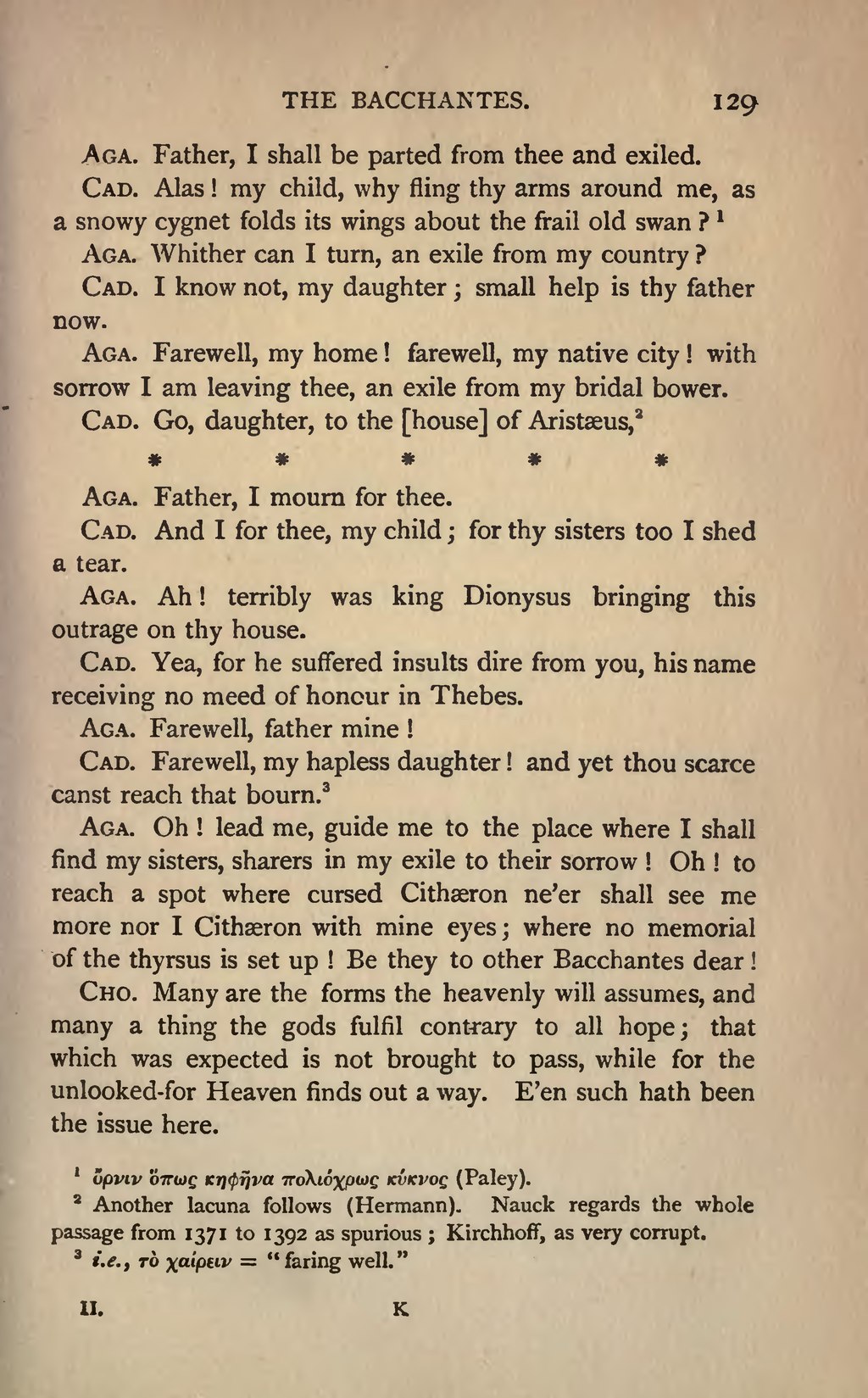Aga. Father, I shall be parted from thee and exiled.
Cad. Alas! my child, why fling thy arms around me, as a snowy cygnet folds its wings about the frail old swan?[1]
Aga. Whither can I turn, an exile from my country?
Cad. I know not, my daughter; small help is thy father now.
Aga. Farewell, my home! farewell, my native city! with sorrow I am leaving thee, an exile from my bridal bower.
Cad. Go, daughter, to the [house] of Aristæus,[2]
• • • • •
Aga. Father, I mourn for thee.
Cad. And I for thee, my child; for thy sisters too I shed a tear.
Aga. Ah! terribly was king Dionysus bringing this outrage on thy house.
Cad. Yea, for he suffered insults dire from you, his name receiving no meed of honour in Thebes.
Aga. Farewell, father mine!
Cad. Farewell, my hapless daughter! and yet thou scarce canst reach that bourn.[3]
Aga. Oh! lead me, guide me to the place where I shall find my sisters, sharers in my exile to their sorrow! Oh! to reach a spot where cursed Cithaeron ne’er shall see me more nor I Cithaeron with mine eyes; where no memorial of the thyrsus is set up! Be they to other Bacchantes dear!
Cho. Many are the forms the heavenly will assumes, and many a thing the gods fulfil contrary to all hope; that which was expected is not brought to pass, while for the unlooked-for Heaven finds out a way. E’en such hath been the issue here.
